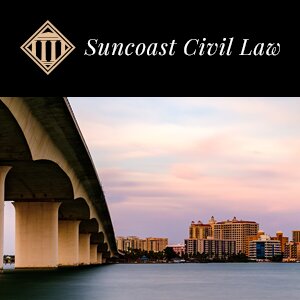Best Public-Private Partnerships (PPP) Lawyers in Florida
Share your needs with us, get contacted by law firms.
Free. Takes 2 min.
Or refine your search by selecting a city:
List of the best lawyers in Florida, United States
About Public-Private Partnerships (PPP) Law in Florida, United States
Public-Private Partnerships (PPP) are collaborative agreements between government entities and private sector companies to finance, design, build, operate, and maintain public infrastructure or provide public services. In Florida, PPPs are commonly used for projects such as transportation, schools, water facilities, and government buildings. The core objective is to leverage private investment and expertise to address public needs efficiently while sharing risks and rewards between public and private partners. PPPs in Florida are governed by specific state laws and regulations that aim to ensure transparency, accountability, and public benefit from these collaborations.
Why You May Need a Lawyer
Navigating a PPP project in Florida can be complex due to the involvement of various stakeholders, regulatory requirements, and significant financial investments. You may need a lawyer in situations such as:
- Drafting or reviewing PPP proposals and contracts
- Understanding compliance with state and local regulations
- Managing risks and liabilities allocated between public and private partners
- Negotiating dispute resolution mechanisms
- Securing permits, licensing, and environmental clearances
- Advising on procurement processes and competitive bidding
- Dealing with issues related to financing and revenue-sharing arrangements
- Representing parties in litigation or arbitration if disputes arise
Legal expertise is essential to protect the interests of all parties, ensure adherence to Florida law, and help projects succeed.
Local Laws Overview
Florida has established a distinct legislative framework for PPPs, primarily outlined under Chapter 255.065 of the Florida Statutes. This law enables responsible agencies to partner with private entities for qualifying projects such as roads, bridges, mass transit, schools, government buildings, water and wastewater facilities, and more.
Some of the notable aspects of local PPP laws in Florida include:
- Public entities may receive unsolicited or solicited proposals from private parties for eligible projects
- Requests for proposals (RFPs) and public notice requirements are designed to ensure fairness and competitive bidding
- Comprehensive agreements must specify performance standards, responsibilities, payment terms, and provisions for oversight
- State and local government agencies retain authority to approve, reject, or modify proposed PPP projects
- Provisions exist for evaluating project feasibility, value for money, and the impact on public welfare
- Safeguards are in place to ensure that the public interest is protected throughout the duration of the partnership
PPP arrangements in Florida are also subject to federal regulations, particularly when federal funding or facilities are involved.
Frequently Asked Questions
What is a Public-Private Partnership (PPP) in Florida?
A PPP is an agreement between a public agency and a private entity to develop, finance, construct, operate, or maintain public projects or services. In Florida, PPPs serve as a means to improve infrastructure and deliver services efficiently by combining public goals with private sector resources and expertise.
What types of projects are eligible for PPPs in Florida?
Typical eligible projects include roads, highways, bridges, mass transit systems, schools, government buildings, water treatment facilities, hospitals, and energy projects. The law allows flexibility in the types of projects, as long as they serve a public purpose.
Can a private company submit an unsolicited PPP proposal in Florida?
Yes, Florida statutes allow private entities to submit unsolicited proposals for qualifying projects. Such proposals must include detailed project information and be subject to public notice and a competitive evaluation process.
What are the typical stages of a PPP project in Florida?
Common stages include project identification, proposal submission and evaluation, negotiation of comprehensive agreements, financing and permitting, construction or development, operation and maintenance, and eventual transfer back to the public agency if applicable.
How is risk allocated in PPP agreements?
Risk allocation is negotiated between the public and private partners. Typically, private parties assume construction, operation, and financial risks, while the public agency retains regulatory or approval-related risks. Clear contractual terms are essential.
What legal regulations must PPP agreements follow in Florida?
PPP agreements must comply with Chapter 255.065, competitive solicitation statutes, procurement regulations, public records laws, and any relevant local ordinances. Compliance with environmental, labor, and safety laws is also required.
How are PPP projects financed?
PPPs are financed through a combination of private capital, public funds, bank loans, bonds, and sometimes federal funding. The financial model varies by project and must be outlined in the agreement.
What is the duration of PPP agreements?
PPP agreements can vary in length, often ranging from several years up to several decades. The duration is determined by the project's scope, financing, and operational needs, as specified in the contract.
Can disputes arise in PPP projects, and how are they resolved?
Disputes can occur regarding design, construction, financing, operation, or contract interpretation. Most PPP agreements specify dispute resolution procedures, such as mediation, arbitration, or litigation in Florida courts.
Why is it important to seek legal advice for PPP projects?
Legal advice ensures compliance with applicable laws, helps avoid costly mistakes, clarifies rights and obligations, and safeguards the interests of both public and private partners throughout the project's lifecycle.
Additional Resources
- Florida Department of Management Services - Division overseeing state government PPP initiatives and procurement
- Florida Department of Transportation (FDOT) - Provides PPP guidance for transportation infrastructure projects
- Florida League of Cities - Offers resources for municipalities engaged in PPPs
- American Bar Association (ABA) - Section of State and Local Government Law with PPP resources
- National Council for Public-Private Partnerships - Advocacy and research organization with publications and toolkits
- Local city and county government procurement offices
Next Steps
If you are considering entering into a Public-Private Partnership in Florida or need legal assistance with an existing PPP project, consider taking the following steps:
- Identify your specific needs, such as contract drafting, project evaluation, compliance, or dispute resolution
- Consult with a lawyer who specializes in PPP law and is familiar with Florida's regulatory landscape
- Prepare all relevant documentation, including project proposals, contracts, or correspondence
- Reach out to professional organizations or governmental agencies for additional guidance and information
- Stay informed about changes in PPP laws and regulations that could affect your project
Legal guidance is crucial for maximizing benefits, minimizing risks, and ensuring that your PPP project aligns with Florida law and delivers lasting value to the community.
Lawzana helps you find the best lawyers and law firms in Florida through a curated and pre-screened list of qualified legal professionals. Our platform offers rankings and detailed profiles of attorneys and law firms, allowing you to compare based on practice areas, including Public-Private Partnerships (PPP), experience, and client feedback.
Each profile includes a description of the firm's areas of practice, client reviews, team members and partners, year of establishment, spoken languages, office locations, contact information, social media presence, and any published articles or resources. Most firms on our platform speak English and are experienced in both local and international legal matters.
Get a quote from top-rated law firms in Florida, United States — quickly, securely, and without unnecessary hassle.
Disclaimer:
The information provided on this page is for general informational purposes only and does not constitute legal advice. While we strive to ensure the accuracy and relevance of the content, legal information may change over time, and interpretations of the law can vary. You should always consult with a qualified legal professional for advice specific to your situation.
We disclaim all liability for actions taken or not taken based on the content of this page. If you believe any information is incorrect or outdated, please contact us, and we will review and update it where appropriate.
Browse public-private partnerships (ppp) law firms by city in Florida
Refine your search by selecting a city.















